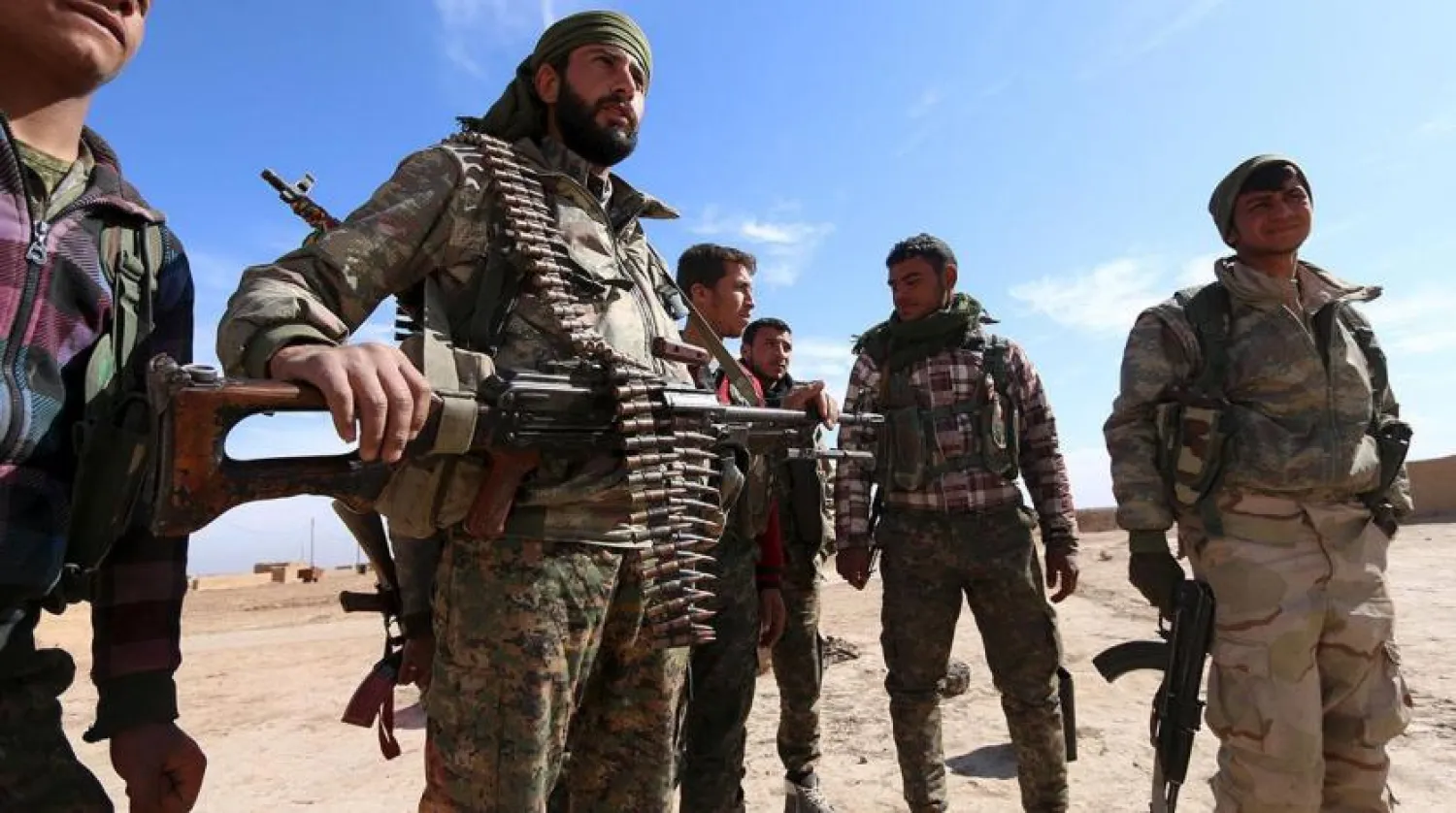The region might be heading towards an Arab-Kurdish conflict that would affect coexistence, a prominent figure in Syria’s Democratic Forces (SDF) has warned.
SDF spokesperson Mustafa Bali accused ISIS elements of assassinating three tribal Sheikhs last week.
“After failing to carry out its criminal acts, ISIS resorts to causing Kurdish-Arab strife among regional components.”
The Autonomous Administration of North and East Syria (NES) also denounced the assassination of Sheikh Mutasher Jadaan al-Hafel and the injury of Leader of al-Agaidat tribe Sheikh Ibrahim Jadaan al- Hafel, describing the incident as “cowardly terrorist act.”
NES Chairman Abdul Hamid al-Mehbash has offered sincere condolences to the Agaidat tribe on Sheikh Hafel’s “martyrdom,” wishing the tribe’s leader speedy recovery.
“We denounce and condemn this cowardly terrorist act, which aims at sowing discord among components,” he stressed, noting that some parties have rushed to point fingers to the NES and its military forces.
Unidentified gunmen have assassinated the Sheikh and his diver Daar al-Khalaf on Monday, and injured Sheikh Ibrahim after opening fire on their convoy in the Hawayij village in Deir Ez-Zour’s eastern countryside.
Hafel was the third Arab tribal leader to be assassinated after Sheikh Suleiman al-Kassar on July 30 and Sheikh Ali Alwis of al-Baggara tribe on August 1.
The Internal Security Forces in Deir Ezzor launched probes and “will not rest until the perpetrators are arrested, handed over to justice and held accountable as soon as possible,” Mehbash stressed.
“We will work to bridge the security gaps and confront whoever tries to undermine regional stability.”
This terrorist act targets all components of northern and eastern Syria, he added, pointing out that it is a desperate and cowardly attempt to affect the coexistence and brotherhood among peoples to destabilize security.
Demonstrations took place against Hafel’s assassination as protesters blocked roads and targeted SDF security checkpoints.
The SDF, for its part, announced a partial ban on Shuhail town and launched a massive security crackdown.
In a statement on Wednesday, the SDF said it has arrested a number of terrorists and suspects, noting that some were injured during the operation.
It also revealed that two of its elements were killed during the operation









